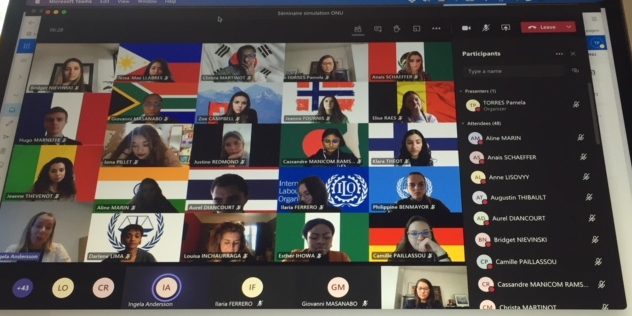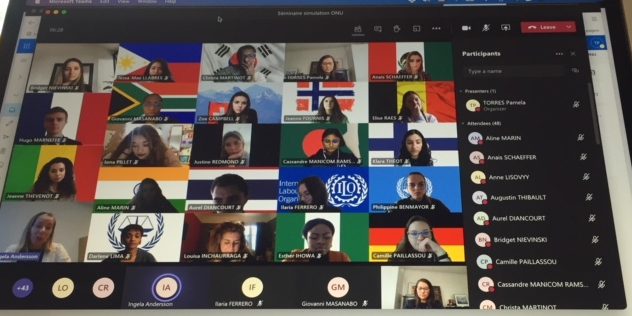M1 students organize a united nations model simulation
Mrs Pamela Torres, professor of « International Organizations » at HEIP, organized a United Nations Model Simulation with her students.
As part of the subject “International Organizations”, students enrolled in International Relations and Diplomacy Master program played the role of 53 UN-member states’ delegations, different International Organizations, International NGOs, and civil society initiatives. By following the rules and procedures of the United Nations, during 3 consecutive days they simulated a multilateral negotiation to “Prevent and Fight against child trafficking in developing countries” within the United Nations’ agency UN.GIFT.
This was an opportunity for students to make part of a diplomatic negotiation as to come up with concrete solutions regarding a topic of global interest such as human rights protection against the traffic of children. Additionally, they experienced public speaking and delivered remarkable statements to defend their national and institutional positions. Ultimately, delegations were able to form coalitions through more informal discussions that were held during the “Unmoderated Caucus” (informal meetings that take place in smaller groups, which goal is to discuss common positions).
This MUN Simulation was innovative in character as it was entirely held on-line through Teams platform. Indeed, each delegation was distinguished by its national and institutional flags (see photos).The outcome was a UN Final Resolution sponsored by the delegations of Bangladesh (Cassandre MANICOM RAMSAMY), Brazil (Marie LECLAIR), France (Hugo MARNEFFE), and Polaris Project (Florine LOUERAT), in which they considered the need to extend the definition of child trafficking to unconsidered domains such as migrant children, and also realized that acting on economic and socio-political domains would impact positively the struggle against child trafficking.




